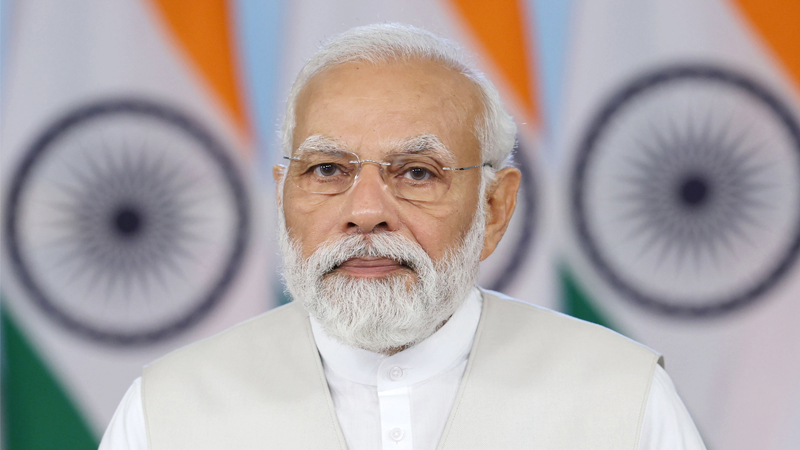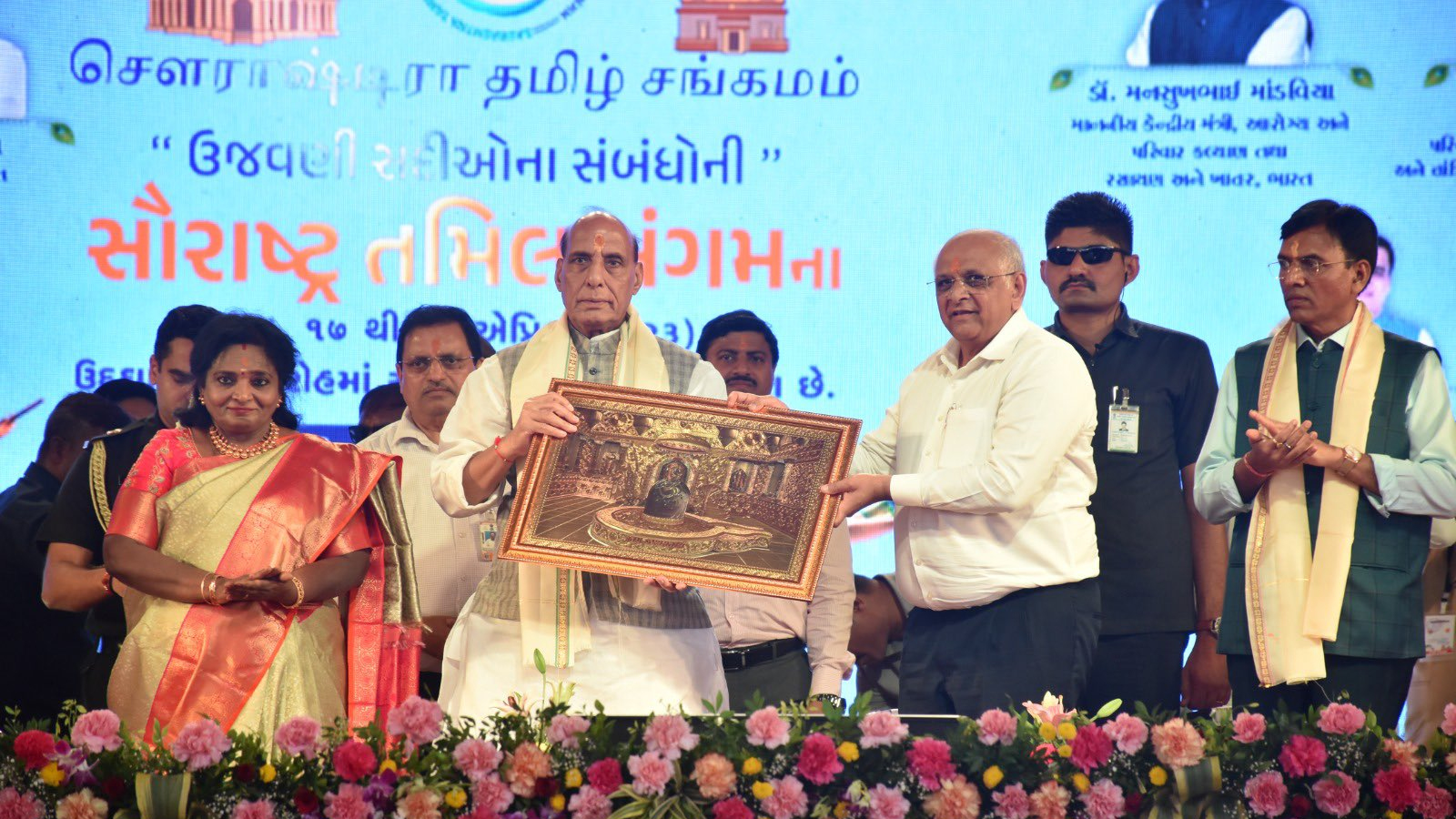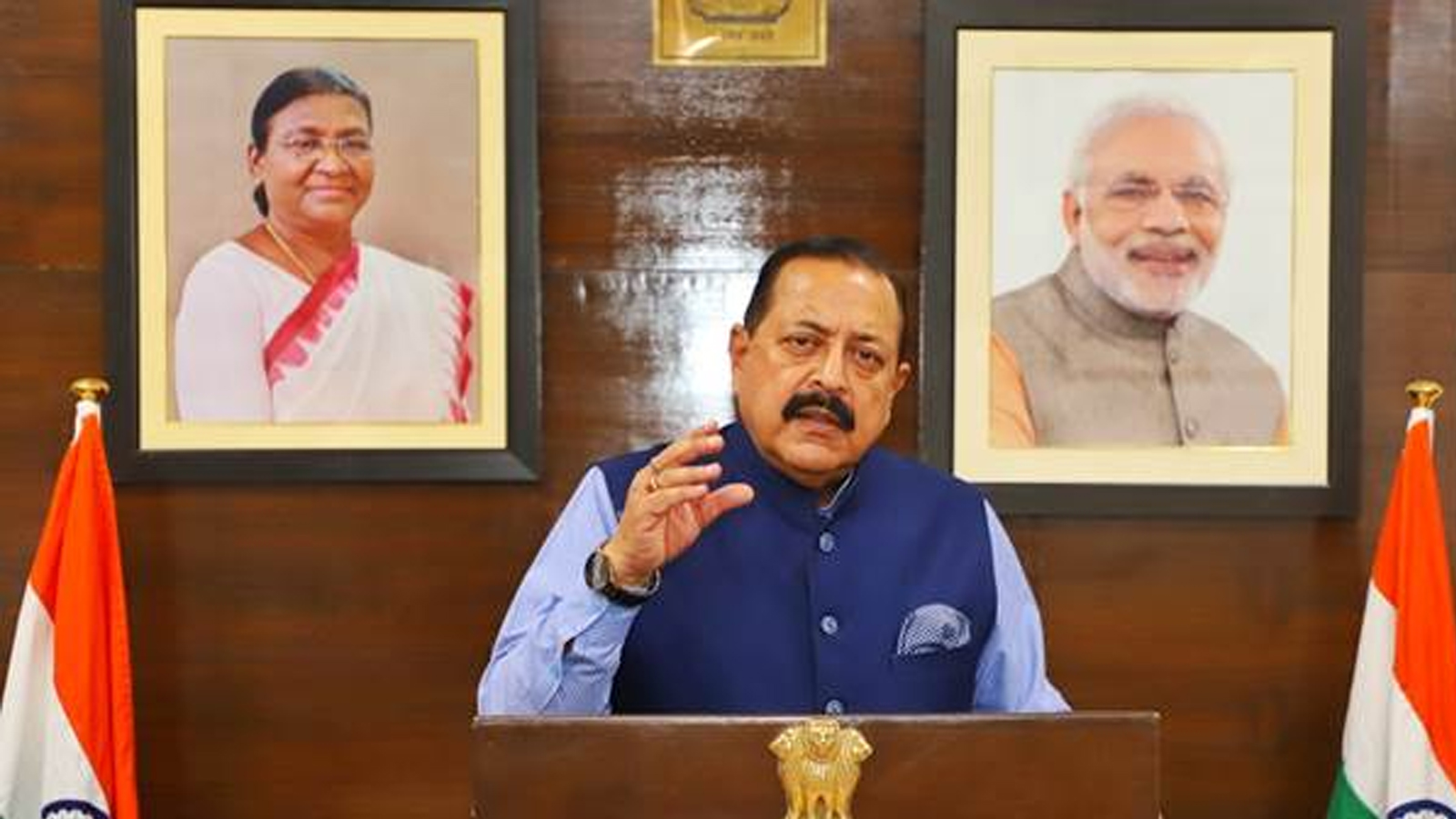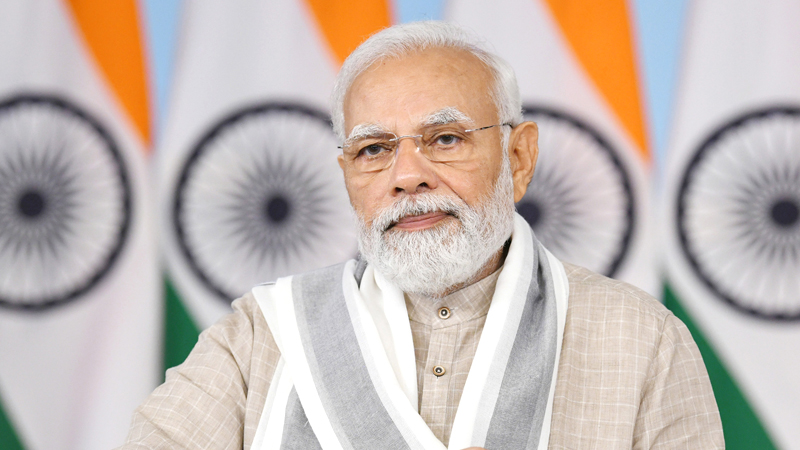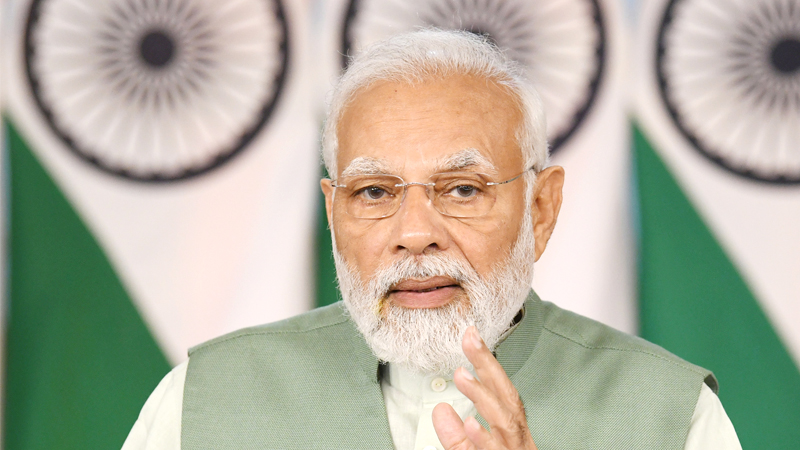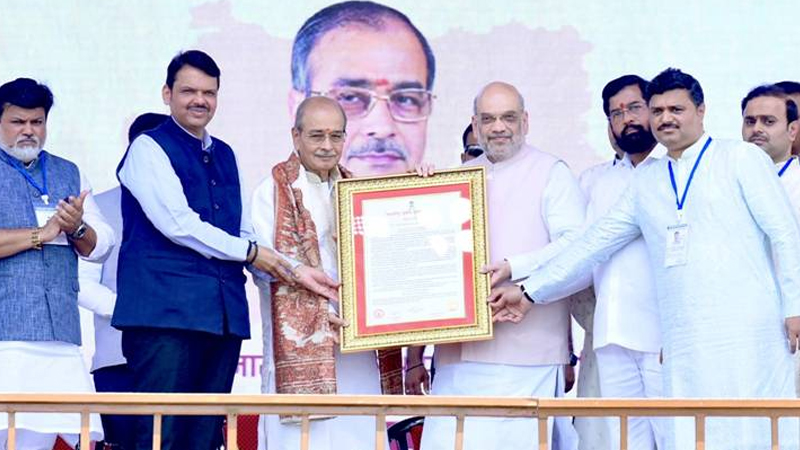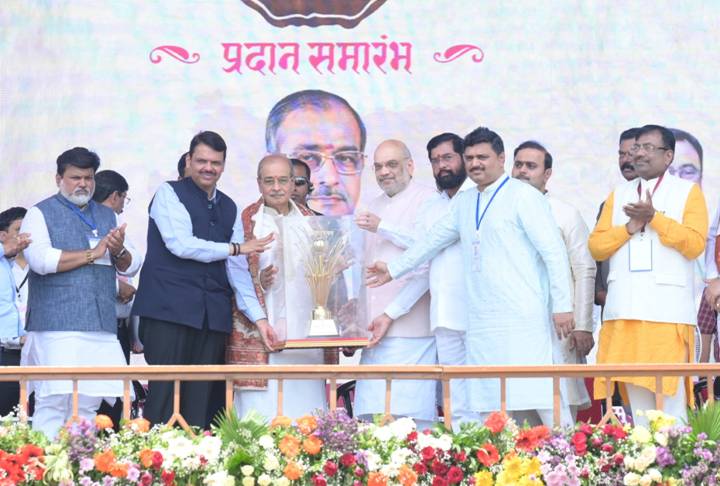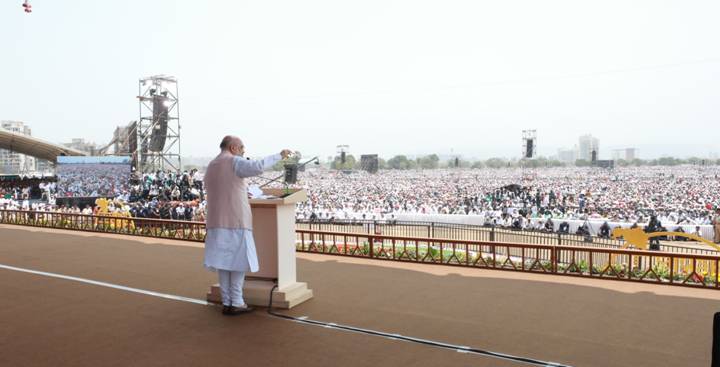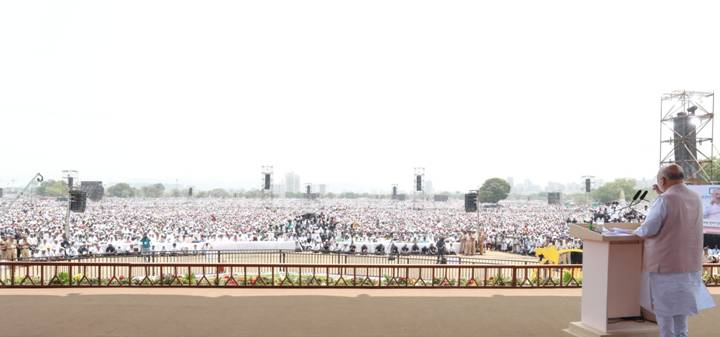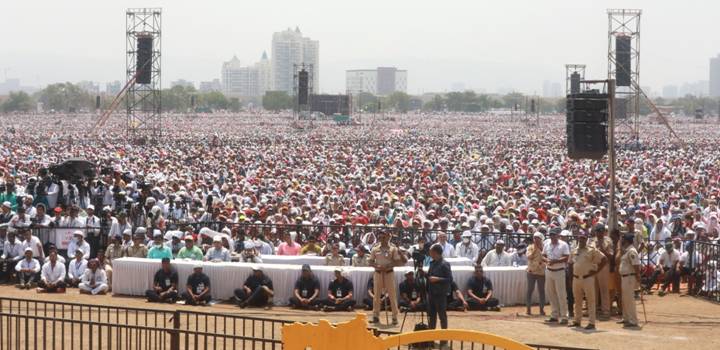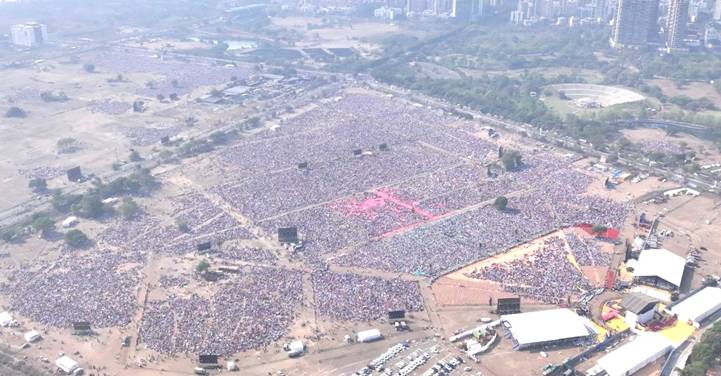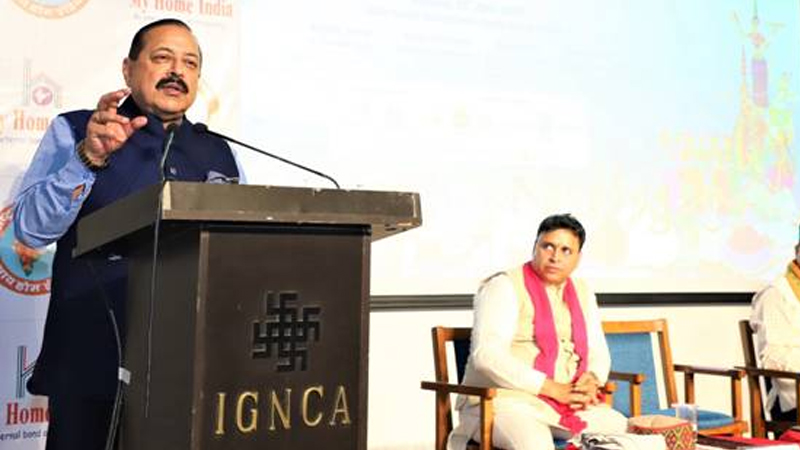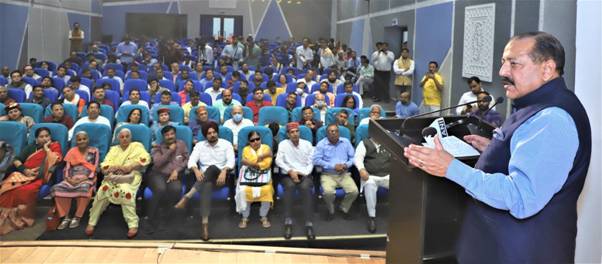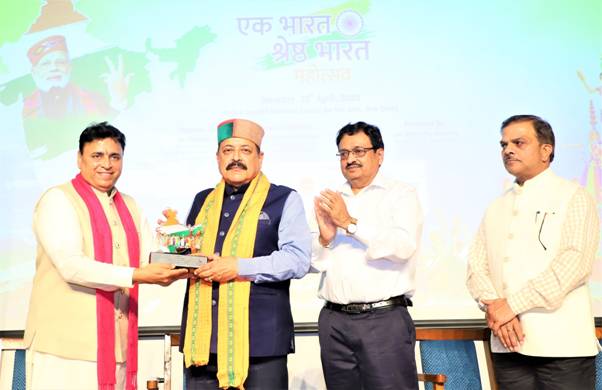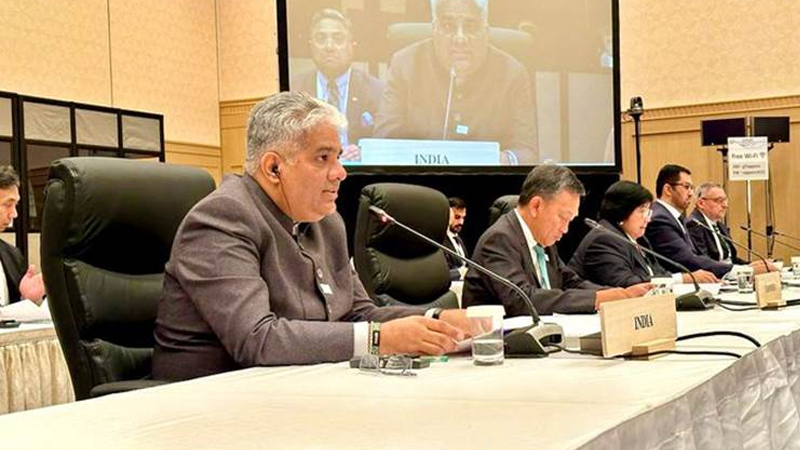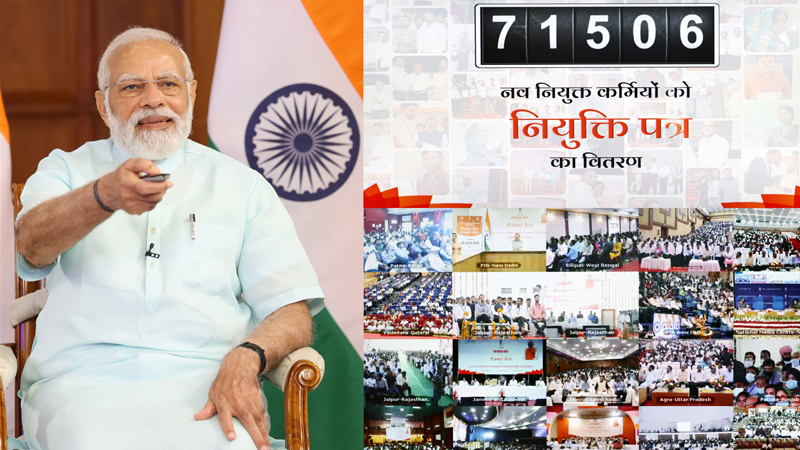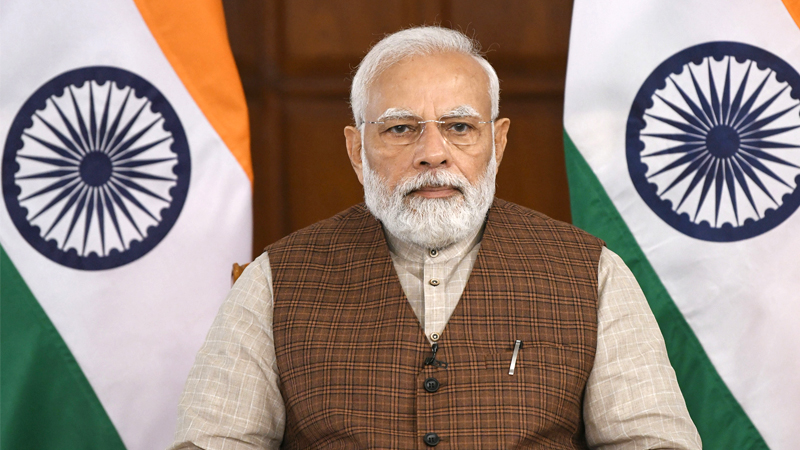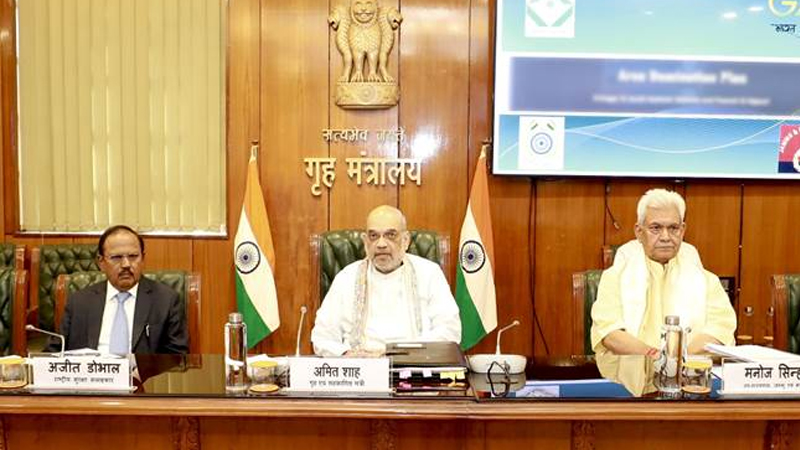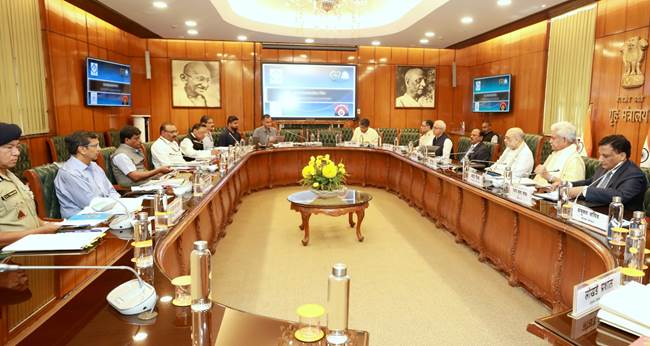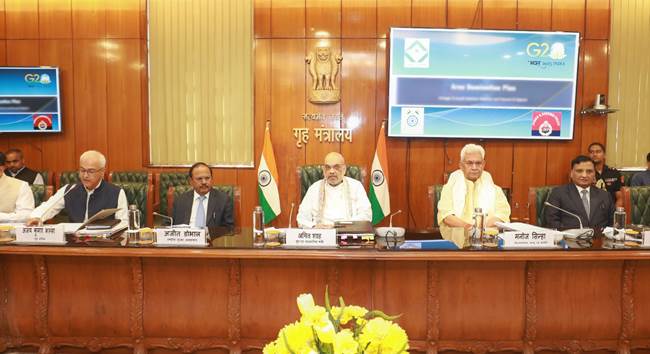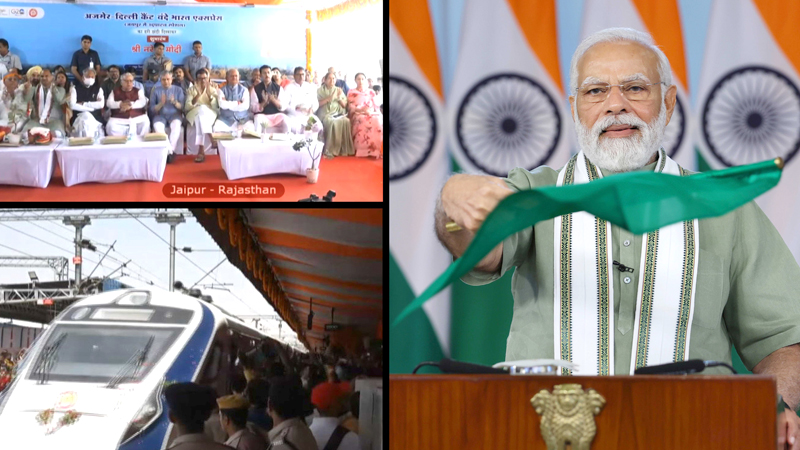The Prime Minister, Shri Narendra Modi addressed the National Rozgar Mela via video conferencing today. He distributed about 71,000 appointment letters to newly inducted recruits in various Government departments and organizations. The new recruits selected from across the country will join various positions/posts under Government of India such as Train Manager, Station Master, Sr. commercial cum Ticket Clerk, Inspector, Sub Inspectors, Constable, Stenographer, Junior Accountant, Postal Assistant, Income Tax Inspector, Tax Assistant, Sr Draughtsman, JE/Supervisor, Assistant Professor, Teacher, Librarian, Nurse, Probationary Officers, PA, MTS, among others. The newly inducted appointees will also be able to train themselves through Karmayogi Prarambh, an online orientation course for all new appointees in various Government departments. 45 places were connected with the Mela during the Prime Minister’s address.
Addressing the gathering, the Prime Minister greeted the nation on the auspicious occasion of Baisakhi. He congratulated the candidates and their families for getting the appointment letter.
The Prime Minister remarked that the government is committed to providing the right opportunities for the talent and energy of the youth to achieve the resolutions of a developed India. The Prime Minister highlighted that the process for government recruitment is taking place at a fast pace in NDA-ruled states from Gujarat to Assam and Uttar Pradesh to Maharashtra. He noted that recruitment letters to more than 22,000 teachers were handed out in Madhya Pradesh only yesterday. “This Rozgar Mela is proof of our commitment towards the youth of the nation.”
Noting that India is one of the fastest growing economies of the world, the Prime Minister said that the world is seeing India as a bright spot amidst the global challenges of recession and pandemic. “Today’s New India is moving with policies and strategies that have opened the doors for new possibilities”, he added. He said that after 2014, India adopted a proactive approach as opposed to the reactive stance of the earlier times. “This has resulted in a situation where this third decade of the 21st century is witnessing opportunities for employment and self-employment that were unimaginable earlier. Youth is finding such sectors which did not even exist ten years ago”, the Prime Minister said. Giving examples of startups and Indian youth’s enthusiasm, the Prime Minister referred to a report that said that startups have created more than 40 lakh direct or indirect jobs. He also mentioned drones and the sports sector as new avenues of employment.
The Prime Minister said “The thinking and approach of Aatmnirbhar Bharat Abhiyan go beyond adopting swadeshi and ‘vocal for local’. Aatmnirbhar Bharat Abhiyan is an ‘abhiyan’ of creating crores of employment opportunities from villages to cities.” He gave examples of indigenously made modern satellites and semi-high-speed trains. He said that more than 30000 LHB coaches have been manufactured in India in the last 8-9 years. Technology and raw materials for these coaches have created thousands of jobs in India.
Giving the example of India’s toy industry, the Prime Minister pointed out that the children of India only played with imported toys for decades. He also stated that the toys were neither of good quality nor were they designed while keeping in mind Indian children. The Prime Minister informed that the government laid the benchmark for the quality parameters of imported toys and also started promoting the indigenous toy industry. As a result, the Prime Minister added that the face of the toy industry in India completely transformed and also played a key role in creating numerous job opportunities.
Countering the prevalent decade-old mindset that defence equipment in India could only be imported, the Prime Minister highlighted that the government changed this approach by trusting indigenous manufacturers which resulted in the armed forces creating a list of more than 300 equipment and weapons that would only be made in India. He informed that Rs 15,000 crores worth of defence equipment is being exported all around the world.
Shri Modi also mentioned the strides made in the field of mobile phone manufacturing in the last few years. He said that by encouraging local manufacturing and providing incentives for that, India saved a lot of foreign exchange as India is now exporting mobile handsets along with meeting the local demand.
The Prime Minister also highlighted the role of investment in infrastructure in employment generation. He said that emphasis on capital expenditure is creating infrastructure like roads, railways, ports and buildings. Highlighting the employment potential of infrastructure, the Prime Minister informed that during the tenure of the present government capital expenditure has grown four-fold.
Giving the example of the developments before and after 2014, the Prime Minister mentioned Indian Railway and pointed out that in the past seven decades before 2014, merely 20,000 kilometers of electrification of railway tracks took place, whereas 40,000 kilometers of rail lines have been electrified in the last 9 years. He also informed that the laying of metro rail lines increased from 600 meters per month before 2014, to 6 kilometers per month today. He further added that the gas network was limited to less than 70 districts in the country before 2014, whereas today this number has gone up to 630 districts. Speaking about the length of roads in rural areas, the Prime Minister noted that it saw an increase from 4 lakh kilometers to 7 lakh kilometers after 2014. “When roads reach the villages, it leads to rapid employment generation in the entire ecosystem”, he added.
Speaking about the aviation sector, Shri Modi informed that the number of airports has grown from 74 in 2014 to 148 today. He also pointed to the employment potential of airport operations. He also mentioned the record order for aircrafts by Air India and similar plans of some other companies. The Port sector is also witnessing similar progress, he said, as cargo handling has doubled compared to the past and time has been cut down to half. These developments are creating a large number of jobs.
Shifting to the health sector, the Prime Minister said that while there were less than 400 medical colleges in the country before 2014, today there are 660 medical colleges. Similarly, undergraduate medical seats have grown to more than 1 lakh from 50 thousand in 2014 and more than double the number of doctors graduating today.
In the rural areas, the Prime Minister continued, FPOs and SHGs are getting assistance worth lakhs of crore, storage capacity is being enhanced, more than 3 lakh common service centers have been created after 2014, more than 6 lakh kilometer optical fiber has been laid villages, more than 2.5 crore houses of the 3 crore houses under PMAY have been constructed in villages, more than 10 crore toilets, more than 1.5 lakh wellness centers and mechanization have increased in the agriculture sector. “All this has created massive employment opportunities”, he said.
Shri Modi also touched upon growing entrepreneurship and hand-holding of small industries. He mentioned Pradhanmantri Mudra Yojna which recently completed 8 years. More than Rs 23 lakh crore worth of bank guarantee-free loans have been disbursed under the scheme and more than 70 percent of beneficiaries are women. “This scheme has created 8 crore new entrepreneurs. These are the people who have started their business for the first time with the help of Mudra Yojana,” he said. He also highlighted the power of micro-finance in energizing the economy at the grassroots level.
Directing his address to those who have received their appointment letters today, the Prime Minister remarked that this is the opportunity to contribute to the development of the country while the nation moves ahead with the goal of becoming a developed India by 2047. “Today you are starting your journey as a Government Servant”, the Prime Minister continued, “In this journey, one should always remember those things which you used to feel as an ordinary citizen.” Noting the expectations of the new appointees from the government, the Prime Minister highlighted that it is now their responsibility to fulfill the expectations of others. “Each one of you will affect the life of a common man through your work in one way or the other”, he added. The Prime Minister emphasized that efforts should be made to create a positive impact on the work and improve the lives of the common man. Concluding the address, the Prime Minister urged the new appointees to not pause their learning process and said that the nature of knowing or learning something new is reflected in both work and personality. He also advised them to upgrade their skills by joining the online learning platform iGoT Karmayogi.
Background
The Rozgar Mela is a step towards the fulfillment of the commitment of the Prime Minister to accord the highest priority to employment generation. The Rozgar Mela is expected to act as a catalyst in further employment generation and provide meaningful opportunities to the youth for their empowerment and participation in national development.


